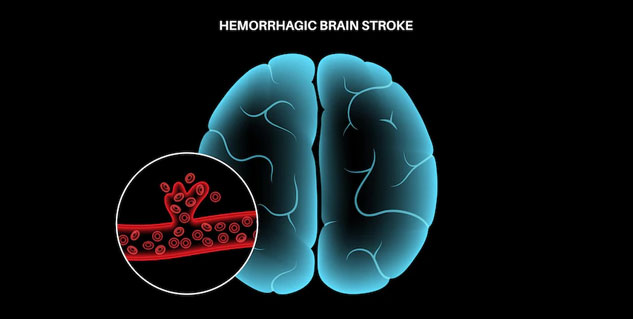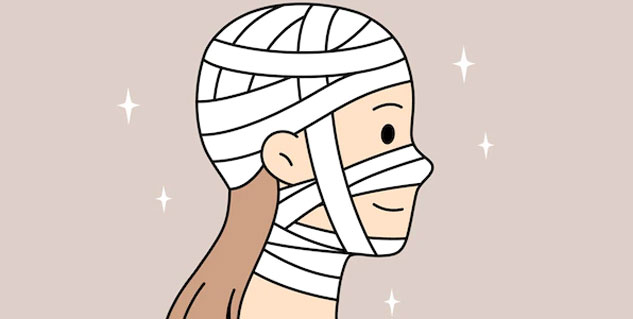
Brain hemorrhage is a kind of stroke. The medical condition means bleeding in the brain. It is mainly caused if an artery in the brain bursts and leads to bleeding in the surrounding tissues. The bleeding can damage your brain cells. Brain hemorrhages are also known as cerebral hemorrhages, intracranial hemorrhages, or intracerebral hemorrhages. They are responsible for almost 13% of strokes. Some brain hemorrhages can be life-threatening, therefore it is important to get medical help as soon as possible if you think someone is having one.
Table of Content:-
Excessive bleeding can be very severe, which can lead to poor flow of oxygen rich blood to the brain tissue. A lack of oxygen flow to the brain can lead to swelling, or cerebral edema. The complications and signs of a brain hemorrhage are different for every age group. Brain hemorrhages are usually common in older adults. Onlymyhealth editorial team spoke to Dr. Khushbu Goel, Consultant Neurologist, HCMCT Manipal Hospital, Dwarka, New Delhi, to know about the symptoms, causes, treatment and prevention of brain hemorrhage.
Brain hemorrhage symptoms

The symptoms of brain hemorrhage can vary from patient to patient. It mainly depends on the location of the bleeding, the severity and the amount of tissues that get affected. The signs can even occur suddenly and get progressively worsened. Here are the main symptoms of brain hemorrhage:
- Numbness or tingling
- Vomitting and nausea
- Severe headaches
- Seizures, without any previous history
- Loss of balance and coordination
- Unconsciousness
- Difficulty in speaking, swallowing, reading and writing
- Lethargy
- Issues in vision
Also read: 29-Year-Old Bollywood's Sound Technician Dies, Stated Reason to Be Brain Hemorrhage
Brain hemorrhage causes
According to Dr. Khushbu, there are many factors that can cause brain hemorrhage. These reasons include:
- Head injury or trauma
- cerebral aneurysm
- Very high blood pressure
- Brain tumor
- Bleeding disorder
- Certain drugs
- Liver disease
Brain hemorrhage treatment

The diagnosis of brain hemorrhage can be difficult as some people might not notice any physical signs. Doctors have to conduct tests to find the exact location of the bleeding in your brain. Surgery may be essential to treat severe brain hemorrhage. The surgery is done to provide relieve from the pressure on the brain. If a burst cerebral aneurysm leads to hemorrhage, a surgeon might even try to remove a part of the skull and clip the artery. This procedure is known as craniotomy.
Other treatment options besides surgery include anti-anxiety drugs, anti-epileptic drugs, and other medicines to control the symptoms, such as seizures and headaches. Patients can recover from brain hemorrhage, although it is important that they should get the right treatment as soon as possible. Rehabilitation can help a patient in restoring back to normal life after a brain hemorrhage. Rehabilitation treatment includes speech therapy, physical therapy and occupational therapy.
Also read: Risk Factors Of Stroke And Things That One Should Keep In Mind
How to prevent brain hemorrhage?
As per Dr. Khushbu, here are some ways to prevent brain hemorrhage:
1. Drive safely
It is important for people to keep themselves protected against any risk of traumatic brain injury. Wear seatbelts in your car and helmets while riding bikes, which can make it possible to protect the head and brain.

2. Make lifestyle changes
Making simple lifestyle changes can also help people in reducing the risk of a cerebrovascular event. People who suffer from high blood pressure need to go for regular checkups and follow ways to lower the blood pressure levels. It is also important to restrict smoking, which is a major risk factor of stroke.
3. Diet and exercise
Some of the most major changes that can help in minimizing the risk of brain hemorrhages are related to diet and exercise. People should eat foods that can enhance heart and brain health. Too much body weight can also cause high blood pressure, diabetes, heart disease, and stroke. People can try to stay physically active which will not only help in controlling unwanted weight but can also reduce the risk of stroke.
Also watch this video
How we keep this article up to date:
We work with experts and keep a close eye on the latest in health and wellness. Whenever there is a new research or helpful information, we update our articles with accurate and useful advice.
Current Version